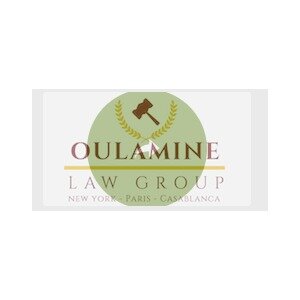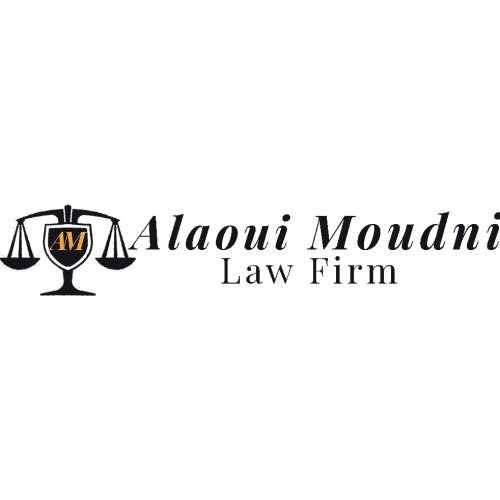Best Natural Resources Lawyers in Casablanca
Share your needs with us, get contacted by law firms.
Free. Takes 2 min.
List of the best lawyers in Casablanca, Morocco
About Natural Resources Law in Casablanca, Morocco
Casablanca, as one of Morocco's major cities and economic hubs, plays a significant role in the management and regulation of the country's natural resources. The region is known for its diverse natural resources, including minerals, water bodies, and fertile agricultural land. The legal framework governing natural resources in Morocco is designed to balance economic development with sustainable environmental practices. The Ministry of Energy, Mines and Environment, along with local authorities, oversees the regulation, exploration, and conservation efforts to ensure the responsible use of these resources. Natural resources law can encompass issues related to mining rights, water usage, land development, and environmental protection.
Why You May Need a Lawyer
There are several scenarios where individuals or businesses may require legal assistance in the field of natural resources in Casablanca:
- Mining and Extraction Rights: Navigating the complex regulations concerning the extraction of minerals and other resources.
- Environmental Compliance: Ensuring that business operations comply with environmental laws and regulations.
- Water Usage Conflicts: Resolving disputes related to water rights and usage, especially in agricultural or industrial settings.
- Land Use and Development: Addressing legal issues involved in the development of land for agricultural, industrial, or commercial purposes.
- Regulatory Approvals: Securing necessary permits and approvals from governmental bodies for resource-related projects.
- Conservation Efforts: Legal assistance with initiatives aimed at preserving natural habitats and biodiversity.
Local Laws Overview
Morocco’s legal system concerning natural resources includes a myriad of regulations and statutes that ensure sustainable management and equitable access. Key aspects of local laws in Casablanca include:
- Mining Code: This regulates the exploration and exploitation of mineral resources, requiring specific permits for operation.
- Water Law: Governs the management of water resources, emphasizing conservation and sustainable use, especially in urbanized areas like Casablanca.
- Environmental Protection: National and regional laws aimed at reducing pollution, protecting ecosystems, and enforcing environmental impact assessments.
- Agricultural Land Law: Laws that regulate the use and division of agricultural lands, safeguarding them from non-agricultural development.
- Renewable Energy Law: Encourages the development and use of renewable energy resources, contributing to sustainable development goals.
Frequently Asked Questions
What are the primary natural resources in Casablanca, Morocco?
The main natural resources in Casablanca are water, minerals, and agricultural lands.
Who regulates natural resource usage in Morocco?
The Ministry of Energy, Mines and Environment, along with regional authorities, oversee the regulation of natural resources.
What permits are required for mining operations in Casablanca?
Mining operations require exploration and exploitation permits, issued by the Ministry and local authorities.
How does Moroccan law address water scarcity issues?
Moroccan laws emphasize conservation, equitable distribution, and sustainable management through regulations and enforcement of water laws.
Are there incentives for using renewable energy resources?
Yes, the government provides various incentives and support for the development and utilization of renewable energy resources.
What legal recourse is available for environmental violations?
Environmental violations can result in fines, penalties, or legal actions enforced through local and national courts.
Can foreigners own land for resource development in Morocco?
Foreign ownership is subject to specific conditions and regulations, often requiring partnerships with local entities or compliance with investment laws.
What role do local communities play in resource management?
Local communities are often involved in resource management through consultations and community benefit sharing initiatives.
How is agricultural land protected under Moroccan law?
The law seeks to protect agricultural land from being diverted to non-agricultural uses, ensuring food security and sustainable practices.
What is the process for obtaining an environmental impact assessment?
The process involves conducting detailed studies and obtaining approvals from relevant authorities before project initiation.
Additional Resources
For further guidance and information, the following resources can be beneficial:
- Ministry of Energy, Mines and Environment: Key governmental body for resource management and regulation.
- Office National de l'Eau Potable (ONEP): Central authority responsible for water management.
- Agence Marocaine de l'Efficacité Énergétique (AMEE): Provides information on energy efficiency and renewable energy projects.
- Local Legal Firms: Specialized in natural resources law, offering expert advice and services.
- Chamber of Agriculture: Offers support for agricultural land management practices.
Next Steps
If you require legal assistance in the field of natural resources in Casablanca, consider taking the following steps:
- Identify Your Needs: Clearly define the legal issue or requirement related to natural resources.
- Consult a Lawyer: Reach out to a reputable lawyer or legal firm specializing in natural resources law for a consultation.
- Gather Documentation: Assemble all relevant documents, permits, and records related to your legal issue.
- Understand Your Rights: Make sure you have a clear understanding of your legal rights and obligations under Moroccan law.
- Engage in Dialogue: Open communication with any stakeholders involved in your case or project can facilitate a smoother legal process.
Lawzana helps you find the best lawyers and law firms in Casablanca through a curated and pre-screened list of qualified legal professionals. Our platform offers rankings and detailed profiles of attorneys and law firms, allowing you to compare based on practice areas, including Natural Resources, experience, and client feedback.
Each profile includes a description of the firm's areas of practice, client reviews, team members and partners, year of establishment, spoken languages, office locations, contact information, social media presence, and any published articles or resources. Most firms on our platform speak English and are experienced in both local and international legal matters.
Get a quote from top-rated law firms in Casablanca, Morocco — quickly, securely, and without unnecessary hassle.
Disclaimer:
The information provided on this page is for general informational purposes only and does not constitute legal advice. While we strive to ensure the accuracy and relevance of the content, legal information may change over time, and interpretations of the law can vary. You should always consult with a qualified legal professional for advice specific to your situation.
We disclaim all liability for actions taken or not taken based on the content of this page. If you believe any information is incorrect or outdated, please contact us, and we will review and update it where appropriate.

















